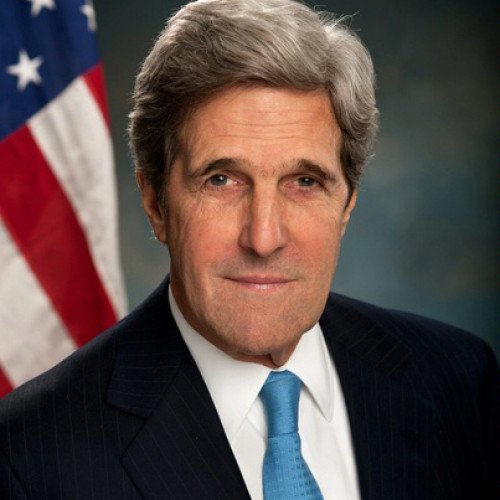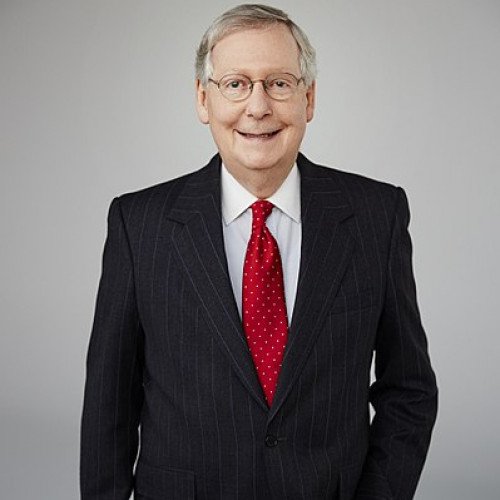John Kerry VS Mitch McConnell

John Kerry
John Forbes Kerry (born December 11, 1943) is an American politician and diplomat serving as the United States Special Presidential Envoy for Climate. He previously served as the 68th United States Secretary of State from 2013 to 2017. An attorney and former naval officer, Kerry first drew public attention as a decorated Vietnam veteran turned anti-war activist. He went on to serve as a prosecutor and as Lieutenant Governor of Massachusetts, before serving as United States Senator from Massachusetts from 1985 to 2013. A member of the Democratic Party, he was the Democratic nominee for President of the United States in the 2004 election, which he lost to incumbent President George W. Bush. Kerry grew up as a military brat in Massachusetts and Washington, D.C. before attending boarding school in Massachusetts and New Hampshire. In 1966, after graduating from Yale University, Kerry enlisted in the United States Naval Reserve, ultimately attaining the rank of lieutenant. From 1968 to 1969, during the Vietnam War, he served an abbreviated four-month tour of duty in South Vietnam. While serving as the commanding officer of a Swift boat, Kerry sustained three wounds in combat with the Viet Cong, earning three Purple Heart Medals. Kerry was awarded the Silver Star Medal and the Bronze Star Medal for valorous conduct in separate military engagements. After completing his active military service, Kerry returned to the United States and became an outspoken opponent of the Vietnam War. He gained national recognition as an anti-war activist, serving as a spokesperson for the Vietnam Veterans Against the War organization. Kerry testified in the Fulbright Hearings before the Senate Committee on Foreign Relations, where he described the United States government's policy in Vietnam as the cause of war crimes. In 1972, Kerry entered electoral politics as a Democratic candidate for the United States House of Representatives in Massachusetts' 5th congressional district. Kerry won the Democratic nomination but was defeated in the general election by his Republican opponent. He subsequently worked as a radio talk show host in Lowell and as the executive director of an advocacy organization while attending the Boston College School of Law. After obtaining his juris doctor in 1976, Kerry served from 1977 to 1979 as the First Assistant District Attorney of Middlesex County, where he tried criminal cases and managed the district attorney's office. After a period in private legal practice, Kerry was elected Lieutenant Governor of Massachusetts in 1982. In 1984, Kerry was elected to the United States Senate. As a member of the Senate Committee on Foreign Relations, he led a series of hearings investigating narcotics trafficking in Latin America, which exposed aspects of the Iran–Contra affair. He was reelected to additional terms in 1990, 1996, 2002 and 2008. Kerry won the Democratic party presidential nomination in 2004, alongside vice presidential nominee and North Carolina Senator John Edwards. Kerry campaigned as a critic of Republican President George W. Bush's prosecution of the Iraq War and advocated a liberal domestic policy. Kerry lost the Electoral College and the popular vote by narrow margins, winning 251 electors to Bush's 286 and 48.3% of the popular vote to Bush's 50.7%. Kerry remained in the Senate and chaired the Committee on Foreign Relations from 2009 to 2013. In January 2013, he was nominated by President Barack Obama to succeed outgoing Secretary of State Hillary Clinton, and was confirmed by his Senate colleagues on a vote of 94–3. As Secretary of State, Kerry initiated the 2013–2014 Israeli–Palestinian peace talks and negotiated landmark agreements restricting the nuclear program of Iran, including the 2013 Joint Plan of Action and the 2015 Joint Comprehensive Plan of Action. In 2015, Kerry signed the Paris Agreement on climate change on behalf of the United States. Kerry served as Secretary of State until the end of the Obama administration in January 2017, when he retired from government service. Kerry has remained active in public affairs as a vocal opponent of former President Donald Trump and as a supporter of President Joe Biden. On November 23, 2020, President-elect Joe Biden announced that Kerry will serve as the U.S. Special Presidential Envoy for Climate in the Biden administration.
Statistics for this Xoptio

Mitch McConnell
Addison Mitchell McConnell Jr. (born February 20, 1942) is an American politician serving as the Senate Minority Leader since January 20, 2021. A Republican, McConnell is currently serving as the senior United States senator from Kentucky, first elected in 1984. McConnell is the second Kentuckian to serve as a party leader in the Senate, the longest-serving U.S. senator for Kentucky in history, and the longest-serving leader of U.S. Senate Republicans in history. McConnell was first elected to the Senate in 1984. During the 1998 and 2000 election cycles, he was chairman of the National Republican Senatorial Committee. McConnell was elected as Majority Whip in the 108th Congress and was re-elected to the post in 2004. In November 2006, he was elected Senate minority leader; he held that post until 2015, when Republicans took control of the Senate and he became Senate majority leader. McConnell holds conservative political positions, although he was known as a pragmatist and a moderate Republican early in his political career. He led opposition to stricter campaign finance laws, culminating in the Supreme Court ruling Citizens United v. FEC that partially overturned the Bipartisan Campaign Reform Act (McCain-Feingold) in 2010. McConnell worked to withhold Republican support for major presidential initiatives during the Obama administration, having made frequent use of the filibuster, and blocked many of President Barack Obama's judicial nominees, including Supreme Court nominee Merrick Garland. During the Trump administration, Senate Republicans, under McConnell's leadership, broke a record for largest number of federal appeals court judges confirmed during a president's first two years; among those nominees were Neil Gorsuch, Brett Kavanaugh, and Amy Coney Barrett, all of whom were confirmed to the Supreme Court. After the 2020 United States Senate elections, McConnell returned to the position of minority leader, as the 50–50 tie in the Senate can be broken by Vice President Kamala Harris. In January 2021, McConnell indicated that he believes the second impeachment of former President Trump is justified due to his role in inciting the 2021 storming of the United States Capitol.